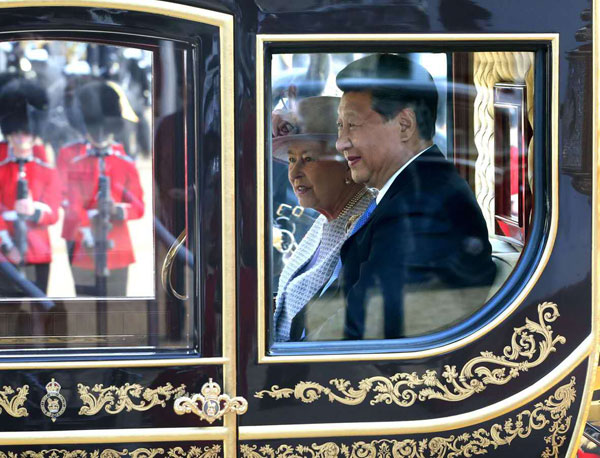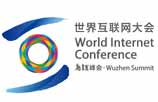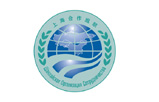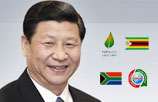Hectic year of trips brought acclaim and growing influence to country
By ZHANG YUNBI (China Daily) Updated: 2015-12-29 07:30
 |
|
Britain's Queen Elizabeth and Chinese President Xi Jinping are driven by carriage along The Mall to Buckingham Palace in London Oct 20, 2015.[Wu Zhiyi/China Daily] |
Shi Yinhong, a professor of international relations at Peking University, said that starting from the fall of last year, China's foreign affairs strategy has focused more on economic aspects.
In addition to the Belt and Road Initiative and the AIIB, China accomplished successful negotiations on a range of bilateral free-trade agreements, including those with South Korea and Australia, and China is advocating the Free Trade Area of the Asia-Pacific, Shi noted.
Observers said China's rising influence also contributed to boosting peace talks and the process of reconciliation in a number of hot spots.
China is among the six countries that successfully reached a comprehensive deal in July with Iran on resolving its nuclear program, and Beijing has maintained contacts with both the Syrian government and the opposition.
On Thursday, Syrian Foreign Minister Walid al-Moallem told reporters in Beijing that the Syrian government is ready to participate in peace talks in Geneva aimed at ending the civil war.
Pang Zhongying, dean of the School of International Relations at Sun Yat-sen University in Guangzhou, Guangdong province, said China cannot stay out of international affairs when other permanent members of the UN Security Council are pushing for political settlements, adding that China's role is within the UN framework and authorization.
China is adapting itself to the changing world, and "it must play a leading role in boosting multilateral coordination efforts", Pang said of China's proposing the AIIB and hosting the Group of 20 summit in 2016.
SuGe, president of the China Institute of International Studies, said China's diplomacy this year has seen it fine-tune its comprehensive approach.
The country is providing more public solutions to tackling global challenges, cementing its partnership with developing countries and "participating in and leading multilateral diplomatic processes", Su said.






